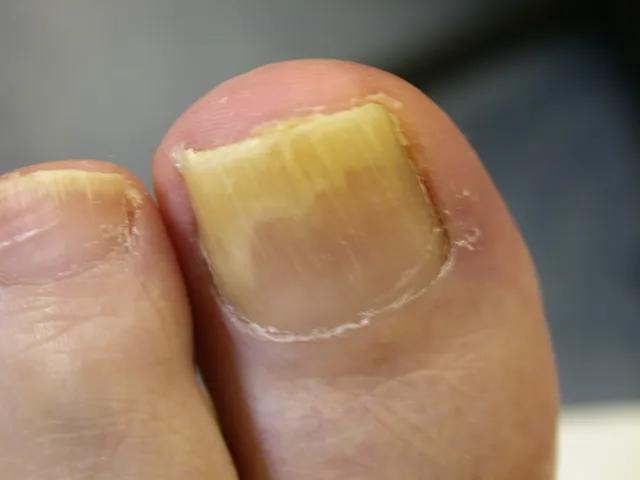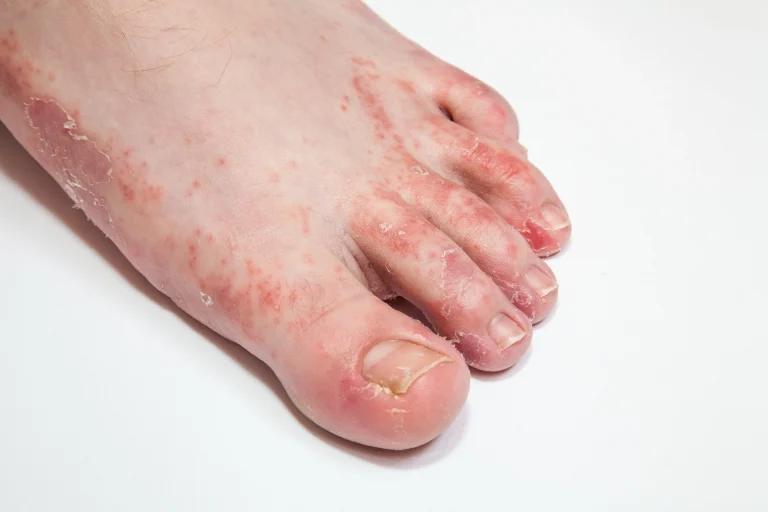
Fungal infections can be a frustrating problem for many individuals, causing many uncomfortable symptoms and disrupting daily life. In this comprehensive article, we will look more closely at why some people are more susceptible to fungal skin infections and explore ways to prevent and manage these conditions.
Understanding fungal infections
Fungal infections are caused by fungi that can thrive in different areas of the human body. These microscopic organisms can use weakened immune systems, disrupted microbial balances, or favorable environmental conditions to establish a foothold and cause various problems.
From skin and nail infections to more serious conditions, fungal infections can wreak havoc on our health. The most common types of fungal infections include:
- Candidiasis (yeast infections)
- Athlete’s foot (tinea pedis)
- Jock itch (tinea cruris)
- Ringworm (tinea corporis)
- Onychomycosis (nail fungus)
- Aspergillosis
- Cryptococcosis
Recognizing the signs and symptoms of these infections is the first step in seeking appropriate treatment and preventing further complications.
Factors that make you prone to fungal diseases
So, why are some individuals more prone to fungal infections than others? Several risk factors can contribute to a higher risk, including:
- Weakened immune system
A compromised immune system, whether due to underlying medical conditions, immunosuppressant medications, or lifestyle factors, can make it harder for the body to fight off fungal infections. Conditions like HIV/AIDS, cancer treatments, and chronic illnesses can all weaken the immune system and increase susceptibility.
- Hormonal imbalances
Hormonal changes, such as those experienced during pregnancy, menopause, or certain medical treatments, can disrupt the body’s natural defenses and cause a fungal overgrowth. This is evident in the case of vaginal yeast infections caused by Candida (usually candida albicans) which are more common in women with hormonal imbalances.
- Antibiotic use
While antibiotics are essential for treating bacterial infections, they can also disrupt the delicate balance of good microbes in the body. This can create an environment that is ideal for fungi, leading to recurrent or persistent fungal infections.
- Diabetes and metabolic disorders
Conditions like diabetes can affect the body’s ability to regulate blood sugar levels, and make individuals more susceptible to fungal infections. High blood sugar levels can create an environment that supports fungal growth, particularly in areas like the skin and mucous membranes.
- Poor hygiene and lifestyle factors
Ignoring your personal hygiene, wearing tight-fitting or moisture-trapping clothing, and engaging in activities promoting sweating, dampness and moist environments can all increase the risk of fungal infections. Maintaining good hygiene and making lifestyle adjustments can help reduce these risks.
Preventing fungal infections
There are several proactive steps you can take to reduce your risk of developing fungal infections:
- Strengthen your immune system
Adopt a healthy lifestyle with a balanced diet, regular exercise, and stress management techniques to support your body’s natural defenses.
- Practice good hygiene
Keep your skin and nails clean and dry, change out of damp clothing or swimwear promptly, and avoid sharing personal items like towels or nail clippers.
- Manage underlying conditions
If you have a condition that weakens your immune system or affects your hormonal balance, work closely with your healthcare provider to keep it under control.
- Be cautious with antibiotics
When prescribed antibiotics, follow your doctor’s instructions carefully and consider taking probiotic supplements to help restore the balance of beneficial microbes.
- Maintain proper foot care
For those prone to athlete’s foot or nail fungus, keep your feet clean and dry, wear breathable shoes, and consider using antifungal powders or sprays. Wear flip-flops when you are in locker rooms, at the pool, and in communal shower areas.
- Practice good vaginal hygiene
Women can help prevent recurrent yeast infections by wearing loose-fitting, breathable underwear, avoiding douching, and seeking prompt treatment for any vaginal irritation or discharge.
By addressing the underlying factors that contribute to fungal susceptibility and using proactive prevention strategies, you can take control of your health and minimize the frustration of recurring fungal infections.
Treating fungal infections
If you suspect you may have a fungal infection, it’s important to seek medical advice. Prescription and over-the-counter (OTC) antifungal drugs are available. Your healthcare provider can perform various diagnostic tests to confirm the presence of a fungal infection and determine the specific type of fungus involved.
Once the diagnosis is established, your provider will recommend the most appropriate treatment plan, which may include:
- Topical antifungal medications
Antifungal creams, ointments, or powders are applied directly to the affected area to combat the fungal growth.
- Oral antifungal medications
For more severe or systemic fungal infections, your provider may prescribe oral antifungal drugs to target the infection from within.
- Lifestyle changes
In addition to medical treatment, your provider may suggest specific lifestyle changes, such as adjusting your diet, improving hygiene practices, or addressing underlying health conditions.
It’s important to follow your healthcare provider’s instructions carefully and complete the full course of treatment to ensure the fungal infection is effectively removed and to prevent recurrence.
Coping with recurring fungal infections
For some individuals, fungal infections can be a persistent and frustrating problem, with recurring episodes that disrupt daily life. If you find yourself dealing with recurrent fungal infections, don’t lose hope. There are strategies you can employ to manage these challenges:
- Work with your healthcare provider
Maintain open communication with your doctor, discuss any concerns or treatment challenges, and be willing to try different approaches until you find a solution that works for you.
- Identify and address underlying causes
Work with your provider to uncover the root causes of your recurring fungal infections, such as immune system weaknesses, hormonal imbalances, or lifestyle factors.
- Look at complementary therapies
In addition to conventional medical treatments, consider incorporating complementary approaches, such as probiotics, herbal remedies, or essential oils, that may help support your body’s natural defenses against fungal invaders.
Prioritize self-care
- Engage in stress-reducing activities, maintain a healthy diet, and get sufficient rest to support your overall well-being and resilience against fungal infections.
Be patient and persistent
- Treating recurring fungal infections can be a journey, and it may require trying different approaches or adjusting your treatment plan over time. Remain patient and persistent in your efforts to find a lasting solution.
By working closely with your healthcare team, addressing the underlying factors, and incorporating a holistic approach to your care, you can take control of your fungal infection.
Conclusion
Fungal infections can be a frustrating and persistent problem, but understanding the factors that contribute to your susceptibility is the first step in managing and preventing these conditions. By strengthening your immune system, practicing good hygiene, and addressing any underlying health issues, you can reduce your risk and take proactive steps to maintain your overall well-being.
Remember, if you do develop a fungal infection, seek prompt medical attention and work closely with your healthcare provider to find the most effective treatment plan. With the right approach and a commitment to your health, you can overcome the challenges of fungal infections and enjoy a more vibrant, infection-free life.
Sources
Medical Disclaimer
NowPatient has taken all reasonable steps to ensure that all material is factually accurate, complete, and current. However, the knowledge and experience of a qualified healthcare professional should always be sought after instead of using the information on this page. Before taking any drug, you should always speak to your doctor or another qualified healthcare provider.
The information provided here about medications is subject to change and is not meant to include all uses, precautions, warnings, directions, drug interactions, allergic reactions, or negative effects. The absence of warnings or other information for a particular medication does not imply that the medication or medication combination is appropriate for all patients or for all possible purposes.








